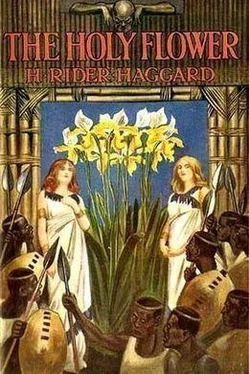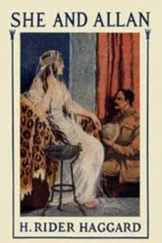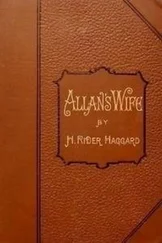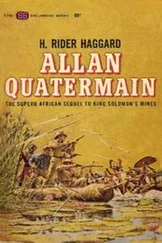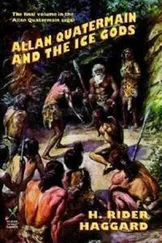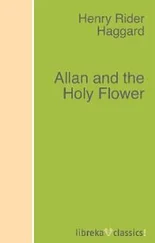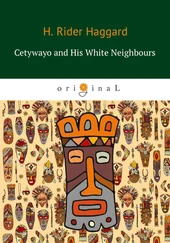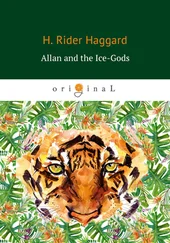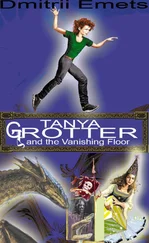Генри Хаггард - Allan and the Holy Flower
Здесь есть возможность читать онлайн «Генри Хаггард - Allan and the Holy Flower» — ознакомительный отрывок электронной книги совершенно бесплатно, а после прочтения отрывка купить полную версию. В некоторых случаях можно слушать аудио, скачать через торрент в формате fb2 и присутствует краткое содержание. Год выпуска: 2014, Издательство: epubBooks Classics, Жанр: Путешествия и география, на английском языке. Описание произведения, (предисловие) а так же отзывы посетителей доступны на портале библиотеки ЛибКат.
- Название:Allan and the Holy Flower
- Автор:
- Издательство:epubBooks Classics
- Жанр:
- Год:2014
- ISBN:нет данных
- Рейтинг книги:5 / 5. Голосов: 1
-
Избранное:Добавить в избранное
- Отзывы:
-
Ваша оценка:
- 100
- 1
- 2
- 3
- 4
- 5
Allan and the Holy Flower: краткое содержание, описание и аннотация
Предлагаем к чтению аннотацию, описание, краткое содержание или предисловие (зависит от того, что написал сам автор книги «Allan and the Holy Flower»). Если вы не нашли необходимую информацию о книге — напишите в комментариях, мы постараемся отыскать её.
Allan and the Holy Flower — читать онлайн ознакомительный отрывок
Ниже представлен текст книги, разбитый по страницам. Система сохранения места последней прочитанной страницы, позволяет с удобством читать онлайн бесплатно книгу «Allan and the Holy Flower», без необходимости каждый раз заново искать на чём Вы остановились. Поставьте закладку, и сможете в любой момент перейти на страницу, на которой закончили чтение.
Интервал:
Закладка:
"Guess that message of yours saved Brother Scroope's life," said old John, as he watched him start.
I made no answer. Here I may state, however, that through my own men I inquired a little as to Brother John's movements at the time of what he called the message. It seemed that he had arranged to march towards the coast on the next morning, but that about two hours after sunset suddenly he ordered them to pack up everything and follow him. This they did and to their intense disgust those Kaffirs were forced to trudge all night at the heels of Dogeetah, as they called him. Indeed, so weary did they become, that had they not been afraid of being left alone in an unknown country in the darkness, they said they would have thrown down their loads and refused to go any further.
That is as far as I was able to take the matter, which may be explained by telepathy, inspiration, instinct, or coincidence. It is one as to which the reader must form his own opinion.
During our week together in camp and our subsequent journey to Delagoa Bay and thence by ship to Durban, Brother John and I grew very intimate, with limitations. Of his past, as I have said, he never talked, or of the real object of his wanderings which I learned afterwards, but of his natural history and ethnological (I believe that is the word) studies he spoke a good deal. As, in my humble way, I also am an observer of such matters and know something about African natives and their habits from practical experience, these subjects interested me.
Amongst other things, he showed me many of the specimens that he had collected during his recent journey; insects and beautiful butterflies neatly pinned into boxes, also a quantity of dried flowers pressed between sheets of blotting paper, amongst them some which he told me were orchids. Observing that these attracted me, he asked me if I would like to see the most wonderful orchid in the whole world. Of course I said yes, whereon he produced out of one of his cases a flat package about two feet six square. He undid the grass mats in which it was wrapped, striped, delicately woven mats such as they make in the neighbourhood of Zanzibar. Within these was the lid of a packing–case. Then came more mats and some copies of The Cape Journal spread out flat. Then sheets of blotting paper, and last of all between two pieces of cardboard, a flower and one leaf of the plant on which it grew.
Even in its dried state it was a wondrous thing, measuring twenty–four inches from the tip of one wing or petal to the tip of the other, by twenty inches from the top of the back sheath to the bottom of the pouch. The measurement of the back sheath itself I forget, but it must have been quite a foot across. In colour it was, or had been, bright golden, but the back sheath was white, barred with lines of black, and in the exact centre of the pouch was a single black spot shaped like the head of a great ape. There were the overhanging brows, the deep recessed eyes, the surly mouth, the massive jaws—everything.
Although at that time I had never seen a gorilla in the flesh, I had seen a coloured picture of the brute, and if that picture had been photographed on the flower the likeness could not have been more perfect.
"What is it?" I asked, amazed.
"Sir," said Brother John, sometimes he used this formal term when excited, "it is the most marvellous Cypripedium in the whole earth, and, sir, I have discovered it. A healthy root of that plant will be worth £20,000."
"That's better than gold mining," I said. "Well, have you got the root?"
Brother John shook his head sadly as he answered:
"No such luck."
"How's that as you have the flower?"
"I'll tell you, Allan. For a year past and more I have been collecting in the district back of Kilwa and found some wonderful things, yes, wonderful. At last, about three hundred miles inland, I came to a tribe, or rather, a people, that no white man had ever visited. They are called the Mazitu, a numerous and warlike people of bastard Zulu blood."
"I have heard of them," I interrupted. "They broke north before the days of Senzangakona, two hundred years or more ago."
"Well, I could make myself understood among them because they still talk a corrupt Zulu, as do all the tribes in those parts. At first they wanted to kill me, but let me go because they thought that I was mad. Everyone thinks that I am mad, Allan; it is a kind of public delusion, whereas I think that I am sane and that most other people are mad."
"A private delusion," I suggested hurriedly, as I did not wish to discuss Brother John's sanity. "Well, go on about the Mazitu."
"Later they discovered that I had skill in medicine, and their king, Bausi, came to me to be treated for a great external tumour. I risked an operation and cured him. It was anxious work, for if he had died I should have died too, though that would not have troubled me very much," and he sighed. "Of course, from that moment I was supposed to be a great magician. Also Bausi made a blood brotherhood with me, transfusing some of his blood into my veins and some of mine into his. I only hope he has not inoculated me with his tumours, which are congenital. So I became Bausi and Bausi became me. In other words, I was as much chief of the Mazitu as he was, and shall remain so all my life."
"That might be useful," I said, reflectively, "but go on."
"I learned that on the western boundary of the Mazitu territory were great swamps; that beyond these swamps was a lake called Kirua, and beyond that a large and fertile land supposed to be an island, with a mountain in its centre. This land is known as Pongo, and so are the people who live there."
"That is a native name for the gorilla, isn't it?" I asked. "At least so a fellow who had been on the West Coast told me."
"Indeed, then that's strange, as you will see. Now these Pongo are supposed to be great magicians, and the god they worship is said to be a gorilla, which, if you are right, accounts for their name. Or rather," he went on, "they have two gods. The other is that flower you see there. Whether the flower with the monkey's head on it was the first god and suggested the worship of the beast itself, or vice versa , I don't know. Indeed I know very little, just what I was told by the Mazitu and a man who called himself a Pongo chief, no more."
"What did they say?"
"The Mazitu said that the Pongo people are devils who came by the secret channels through the reeds in canoes and stole their children and women, whom they sacrificed to their gods. Sometimes, too, they made raids upon them at night, 'howling like hyenas.' The men they killed and the women and children they took away. The Mazitu want to attack them but cannot do so, because they are not water people and have no canoes, and therefore are unable to reach the island, if it is an island. Also they told me about the wonderful flower which grows in the place where the ape–god lives, and is worshipped like the god. They had the story of it from some of their people who had been enslaved and escaped."
"Did you try to get to the island?" I asked.
"Yes, Allan. That is, I went to the edge of the reeds which lie at the end of a long slope of plain, where the lake begins. Here I stopped for some time catching butterflies and collecting plants. One night when I was camped there by myself, for none of my men would remain so near the Pongo country after sunset, I woke up with a sense that I was no longer alone. I crept out of my tent and by the light of the moon, which was setting, for dawn drew near, I saw a man who leant upon the handle of a very wide–bladed spear which was taller than himself, a big man over six feet two high, I should say, and broad in proportion. He wore a long, white cloak reaching from his shoulders almost to the ground. On his head was a tight–fitting cap with lappets, also white. In his ears were rings of copper or gold, and on his wrists bracelets of the same metal. His skin was intensely black, but the features were not at all negroid. They were prominent and finely–cut, the nose being sharp and the lips quite thin; indeed of an Arab type. His left hand was bandaged, and on his face was an expression of great anxiety. Lastly, he appeared to be about fifty years of age. So still did he stand that I began to wonder whether he were one of those ghosts which the Mazitu swore the Pongo wizards send out to haunt their country.
Читать дальшеИнтервал:
Закладка:
Похожие книги на «Allan and the Holy Flower»
Представляем Вашему вниманию похожие книги на «Allan and the Holy Flower» списком для выбора. Мы отобрали схожую по названию и смыслу литературу в надежде предоставить читателям больше вариантов отыскать новые, интересные, ещё непрочитанные произведения.
Обсуждение, отзывы о книге «Allan and the Holy Flower» и просто собственные мнения читателей. Оставьте ваши комментарии, напишите, что Вы думаете о произведении, его смысле или главных героях. Укажите что конкретно понравилось, а что нет, и почему Вы так считаете.
